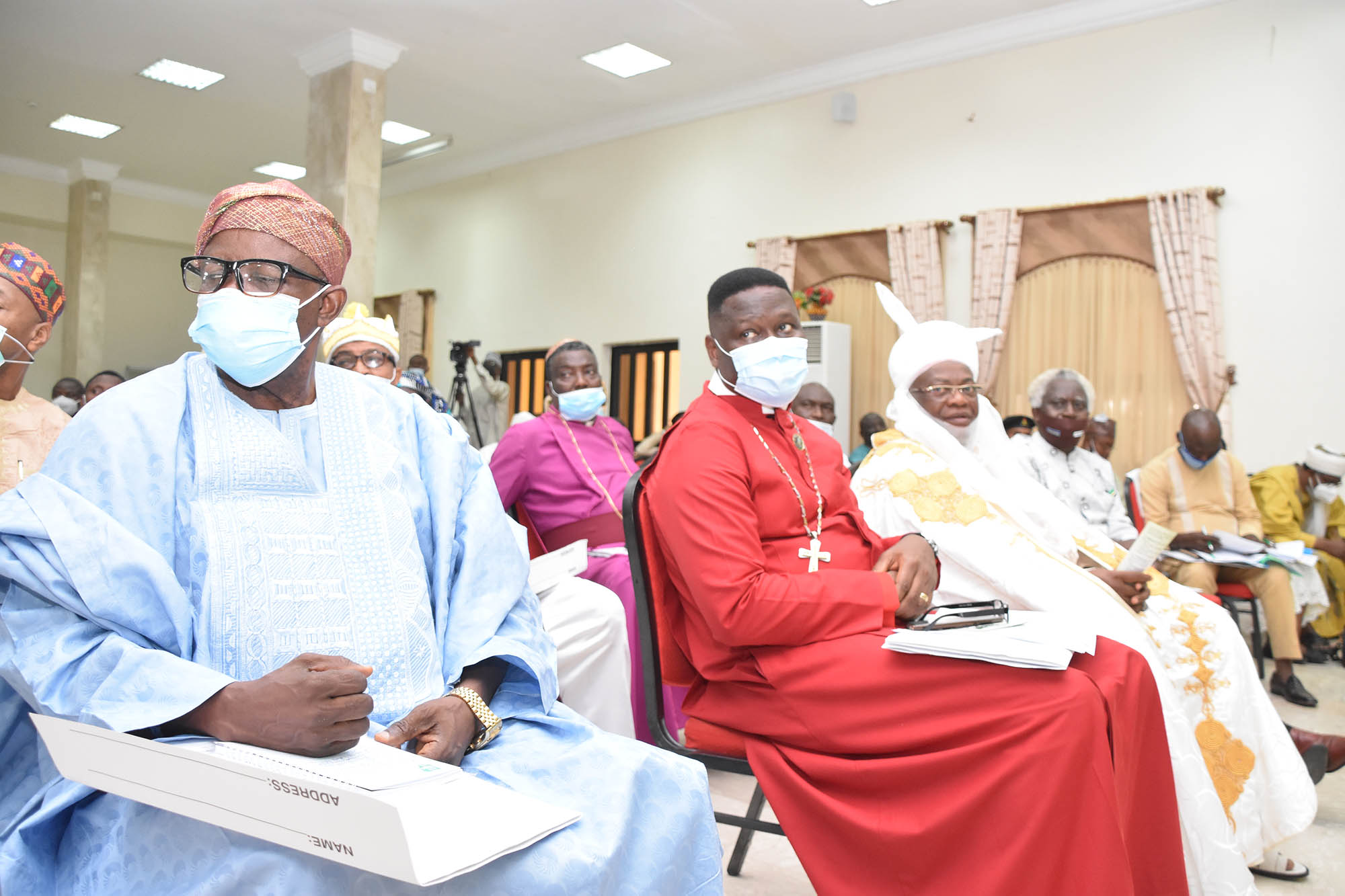Editorial
In Support Of SNGF

Governors of the 17 southern states under the auspices of the Southern Nigeria Governors Forum (SNGF) recently rose from a meeting in Asaba, Delta State, and made significant endorsements on security and the remodelling of the vulnerable Nigerian State. This is an act of courage needed to save the country at this critical moment.
Their recommendations included a call on the President, Muhammadu Buhari, to address the country on the ravaging insecurity, restore the confidence of the people, acknowledge the necessity of state policing and recognise Nigeria’s considerable diversity in federal appointments, including the security agencies.
Furthermore, the governors resolved to place a total ban on open grazing of cattle throughout the South, called on Buhari to convoke a national discussion in response to agitations for restructuring, want urgent and bold steps to fashion a true federation with state police, fiscal autonomy of the states and reforms of institutions that will promote true federalism.
Indeed, the timely intervention of the Southern Governors presents a watershed moment as the nation becomes a contested arena between the progressive will of the people and the regressive whims and caprices of a few. It is for this reason that the commendable display of audacity by the governors across party lines reflects the urgency and craving for relief as demanded by southerners of all affiliations.
Southern Governors must realise that now more than ever, regardless of party affiliations, their citizens look up to them for protection from rampaging marauders and bandits. They must, therefore, push forward their collective interests and hold many more positive conferences involving other Southern stakeholders in the immediate future for the sake of the rapidly deteriorating national state of affairs.
No doubt, Nigeria is bleeding following the activities of insurgents, bandits and kidnappers. No zone is spared from this grief map of the country. Some ethnic lords make matters worse by going about uttering provocative comments which jeopardise the peace and unity of the country. It is refreshing that Governors down the South have finally woken up to the existential threat to national survival.
The Pan-Niger Delta Forum (PANDEF) applauded the Southern Governors Forum for taking a position on issues of restructuring of the country, open grazing, and the alarming state of insecurity. It also hailed the governors for making far-reaching decisions on the question of skewed appointments into federal establishments, including security agencies.
Unfortunately, some federal officials are unhappy with the position of the Governors. The President of the Senate, Dr Ahmad Lawan, and Speaker of the House of Representatives, Femi Gbajabiamila, are particularly disappointed at the stance canvassed by the Southern Governors. They preferred that the governors sought an audience with the President or the National Assembly, especially with regards to restructuring the federation.
The Tide heartily agrees with the 17 governors that the state of the nation urgently requires scrutiny by various groups. Besides, the Northern Governors have consistently met and volunteered positions on issues agitating the polity. The Southern Governors’ meeting was only the second since President Muhammadu Buhari assumed office, the first having been held in 2017 in Lagos.
There are germane concerns to be considered from the decisions reached at the summit. First, the President must address the nation in a broadcast. If he finds that too cumbersome to perform, he could consult with groups like traditional rulers, religious leaders, women and youth groups. That will portray him as a man of the people. This he could do without waiting for a loud cry from Nigerians.
On restructuring, it is sad that President Buhari had severally dismissed calls for the realisation of this all-important issue, describing such calls as unwarranted and unpatriotic. Moreover, restructuring was part of what the ruling party, the All Progressives Congress (APC), promised Nigerians before the 2015 general election. The Federal Government should give up its tough stance and listen to Nigerians. It should act on the Nasir el-Rufai’s Committee’s report on restructuring.
Most Nigerians are not keen on the demand for a national dialogue as recommendations of previous discussions and conferences are gathering dust on the shelves. There are fears also that a national dialogue may end up becoming another talk shop and waste of money. In light of these, we request that the government goes through the submissions of previous conferences and take some resolutions which can be sent to the National Assembly as executive bills.
Also, our current constitution must be looked into since it is not a true manifestation of the wishes of many Nigerians. As it is, power is so much focused at the centre. Hence, there is a need for the devolution of more powers to the constituent states or regions as it is attainable in the United Kingdom (UK) where the Welsh, the Scots and the Irish exercise regional autonomy.
Since some of the decisions of the southern governors require constitutional amendments to actualise, due advantage should be taken of the ongoing amendment process to articulate those resolutions that will advance true federalism. Accordingly, the South-South region must fully participate and back the Governors’ proposals at the zonal public hearing on the amendment to be held in Port Harcourt next week.
Having publicly declared their stand on the pressing national issues, the Southern Governors must not wait for the Federal Government to effect their resolutions but should take specific and immediate steps to stem the criminality prevailing in their states and realise other aspirations since the federal authorities cannot contain the menace and return the country to lasting prosperity.
Editorial
For A Prosperous 2026

Editorial
Task Before New Defence Minister
Editorial
HYPREP And The Collapsed Water Tank


